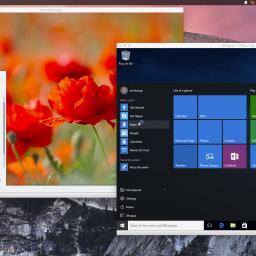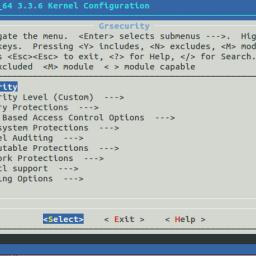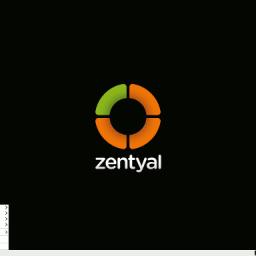
Ubuntu Studio was created for a specific use case: multimedia production. Ubuntu Studio focuses on three core areas - video production, audio production and graphics. It uses low-latency Linux kernel, which is built with different configurations to reduce latency, something that is critical in cases of real-time audio recording. Users can use the appropriate kernel tree suited for their work. It comes with a huge list of open source applications for these three areas. Ubuntu Studio does more than just offer multimedia production applications.
The first version of Ubuntu Studio was released in 2007 and it was based on Gnome. In 2011, with the arrival of Gnome 3, the project decided to switch its base to Xfce, a move that the founder of the project said would offer some "immediately tangible" advantages: "For example, XFCE represents a familiar desktop metaphor (@Fab thanks) for users and provides a more resource friendly environment than GNOME, KDE, or (I would expect) Unity."
http://www.itworld.com/article/2998305/linux/meet-the-ubuntu-family.html#slide5
The gurus behind the popular and respected Linux kernel hardening effort Grsecurity will
stop providing their stable patches to the public. In future, only paying sponsors will get access to stable patches to shore up their kernels' defenses. The test series, unfit for production use, will however continue to be available, to avoid impacting the Gentoo Hardened and Arch Linux communities. The project's
full source code will still be released to the public at large, but non-sponsors will have to pick through every update to find out what's applicable to them.
The whole situation stems from WindRiver, a subsidiary of Intel, which "has been using the grsecurity name all over its marketing material and blog posts to describe their
backported, unsupported, unmaintained version in a version of Linux with other code modifications that haven't been evaluated by us for security impact." After spending several thousand on legal fees, faced with "a huge legal team, the capability to drag out the case for years" and a threat to request "all available sanctions and attorneys' fees" were the lawsuit to proceed against them, Grsecurity decided pursuing the case through the courts was not practical.
Linus has been busy toiling away on the next version of the Linux kernel, and now
version 4.2 has finally been released. It brings some goodies worth having. The ChaCha20 stream cipher and the Poly1305 authenticator (see RFC 7539) are supported, and there's a new RSA implementation. The default crypto random number generator API is now DRBG. LinuxPlanet notes that there's support for security module stacking. Linux 4.2 uses CPU execution jitter to help seed its improved random number generator, a feature called "jitter entropy RNG" on the basis that sushi should be called "cold dead fish".
The release of 4.2 comes just a few days after
the 24th birthday of Linux, announced on newsgroup comp.os.minix. It isn't an overstatement to say that the modern world runs on Linux. If you look around you, almost everything is running on Linux -- from your home router to stock exchanges. Thanks to Linux, open source has become a phenomenon that is fast becoming a norm in the enterprise and consumer segments. Fierce competitors like Google, Facebook, Yahoo!, Twitter, Red Hat, SUSE are all working together to make open source software even better.
Now that systemd is uneventfully running the latest releases of major distributions like Debian, Fedora, and Ubuntu, you might imagine that opposition to it is melting away -- but you'd be wrong. Instead,
the rumors are as common as ever. Devuan, the anti-systemd fork of Debian, is still trudging towards a release while making the same arguments as ever. Devuan's home page asks: Have you tried to opt-out of the systemd change in Debian and stay with sysvinit? You will quickly notice that "Debian offers no choice." Yet a search quickly unearths instructions for making an install image without systemd and for removing systemd from your system.
Nor does the claim that systemd violates the Unix design principles stand up under scrutiny. Systemd is actually a general name for a series of related, similarly structured commands. From this perspective, systemd conforms to the principle of one program doing a single function in much the same way as the Linux kernel or a command line shell does. It is a suite of programs, not a single monolithic one. Systemd may not be ideal, but systems continue to boot and function the way they are supposed to.
In fact, not only are the most common anti-systemd arguments easily discounted, but they are surrounded by a vagueness that raises suspicions. Wild claims are made without any attempt at substantiation. The result is an air of secrecy and danger that, however appealing and reminiscent of freedom-fighting that it might be, does nothing to justify the anti-systemd rhetoric or make it plausible. Devuan's mailing list mostly shows the same dozen or so posters, and has raised only 7934 Euros. Supporters sound as though they are doing more fear-mongering than constructive effort.
ConnochaetOS, a
Slackware- and
Salix OS-based GNU/Linux Distribution, has announced a Release Candidate 2 for its version 14.1 after a several year hiatus.
This time it will be again a free/libre distro which contains only free software. It still focuses on lightweight usage and old computers - why there will be only a 32 bit version. To reduce the workload ConnochaetOS will be based on Slackware and Salix OS.
The versioning will follow the Slack/Salix versioning scheme to make things easier. So the next ConnochaetOS release will be version 14.1.
The ConnochaetOS website is also host to the
slack-n-free repository, which provides Free Software replacements, including a linux-libre kernel, in the Slackware
.t?z format.
Promising news for Free Software and Slackware fans alike.

Never saw this one coming: Enlightenment has been forked. The new product is called Moksha (Sanscrit: "emancipation, freedom") and is based not on the newest version of Enlightenment, E19, but rather an older version, E17.
Behind Moksha is Jeff Hoogland and the folks at Bodhi Linux, who got frustrated with the turn that Enlightenment development has taken, and believe Moksha will be the path that takes the useful, stable release of E17 and makes it into something better. From Hoogland's blog:
Bodhi has always been a project based around the Enlightenment desktop.
The Enlightenment desktop however has changed a lot over the last few years. It went from being the "Duke Nukem Forever" of open source software without an official release in over a decade to having three new "major" versions released in the course of the last three years.
The problem with these major releases is that instead of continuing to perfect the end user facing components E17 started over the course of a decade, they were essentially internal tear downs. While optimizations are a good thing to be had, optimizations that break existing features users enjoy and use are bad. These tear downs were rushed to meet release deadlines and did not have the same quality and stability the E17 desktop had come to know.
The E18 desktop was so bad Bodhi skipped it entirely (although you can still find old packages in the 2.4.0 testing branch). When E19 released in the fall of 2014 it did make things better, but that was not difficult considering the mess E18 was.
E19 was usable enough that I gave it an honest try. I spent hours working with the upstream developers and filing bug reports. The biggest issue was that none of the Enlightenment developers were using E19 as their daily desktop. As soon as it was released they jumped on to their next rewrite - E20.
After my umpteeth bug report was met with "Works with E from Git" I was ready to call it quits. In fact for several months I did essentially quit. I was so frustrated I stepped away from the project I had devoted countless hours to over four years.
Submitter note: As an Enlightenment fan, this is interesting, but worrying. Enlightenment is a big code base, and a lot of work to take on. Hope they can make it work - E17 is a fantastic desktop!
After 2 years and 10 months,
XFCE 4.12 has been released, and its changelog is an impressive list of refinements, improvements, and new features.
For starters, they've streamlined the code, removing a whole host of options the developers decided were no longer the best way to accomplish common tasks. The minimize/maximize buttons are gone now, and all apps run full-screen all the time. You can access a subset of options via keystroke combinations (sadly, these haven't been documented yet but they should be obvious).
Oh wait, just kidding. Must have been thinking about some other desktop environment there. Seriously, have a look at the user-friendly improvements the XFCE team has worked into this release.
Check out the link for a multiple-page change log of significant features, including improvements to alt-tab dialogues, panel features, usage with multiple monitors, a move to GTK3, and more. XFCE remains independent of Linux-specific system features, and instead designed a front-end/back-end approach that allows it to work equally well on Linux, the BSDs, and beyond. As a BSD-user, I'm immensely proud. Finally, note throughout the press release the number of times they mention listening to their users and implementing the features that users said they wanted. More than one other major project could benefit from a similar approach to working with its community.
[Edit 2015-03-02 22:25 There was a very important "just kidding" sentence between paragraphs 2 and 3 that was important, because paragraph 2 is a joke. I've re-added it; otherwise I would expect to be flamed alive by angry XFCEers wondering why i'm such an idiot].
It seems that the Debian based distribution's time has finally come.
Crunchbang (#!) Linux has decided to end the project. The project's developer Philip Newborough writes:
I have decided to stop developing CrunchBang. This has not been an easy decision to make and I've been putting it off for months. It's hard to let go of something you love.
He goes on to reason that:
I'm leaving it behind because I honestly believe that it no longer holds any value, and whilst I could hold on to it for sentimental reasons, I don't believe that would be in the best interest of its users, who would benefit from using vanilla Debian.
With friends using this on their main machines, and as an old #! user myself with the distribution sitting on a couple of old laptops, I'm personally sad to see it go. It will be interesting to see what comes out of this announcement.

Zentyal is an interesting
utility distro with a slick web UI designed to solve a common complaint... getting a plethora of networking services up and running on Linux in minutes with just a few clicks, while still being capable enough to support the needs of small to medium businesses. It resembles the very expensive unified threat management products from companies like Symantec (which are often Linux-based themselves) that have become popular in many organizations, but which sell for tens of thousands of dollars instead of being free to install on any spare server (or virtual machine).
Zentyal
can be configured to serve as anything from an IDS and firewall which does network routing with QoS, VLAN tagging, and VPN/IPSec, to a certificate authority, or an Exchange replacement with calendar, contacts, ActiveSync, MAPI, and Jabber for chat. It can be your VoIP server, with voicemail and hold music, or Active Directory controller and file server (Samba) supporting Windows clients.
Zentyal can even be made into a full "captive portal" gateway, like those used by hotels and other WiFi hotspot providers for displaying terms of service and possibly requesting payment information, but which can also be invaluable for allowing misconfigured laptops internet access. The usual basic services are there, like web sites and printer sharing, of course. And clustering is an option for high availability of services, if you run more than one Zentyal server.
Well, they said they would do it, and they did. A group of Debian loyalists took great issue with the systemd issue in Debian, and threatened they'd fork it if Debian moved forward with its plans to replace trusty old System V init script with the new systemd system developed by RedHat's Lennert Poettering. A week ago, the Debian board voted to move forward with systemd, and the trigger was pulled.
World, meet Devuan. It's pronounced "Dev One" and is backed by a team of "veteran system admins" who prefer the stability and simplicity of the System V init scripts, and frankly aren't overly pleased with a lot of the other recent decisions made at Debian either. They state recent decisions have been too overly influenced by RedHat's developers and are prioritizing Linux desktops over Linux servers, which is not smart given Debian's huge lead in server systems and its relatively small desktop market share.
Forking Debian is no simple matter, and a simple glance at
Distrowatch.org serves as a reminder Debian is the underpinning of a huge number of other distros out there. Where to begin? Here:
Devuan will derive its own installer and package repositories from Debian, modifying them where necessary, with the first goal of removing systemd, still inheriting the Debian development workflow while continuing it on a different path: free from bloat as a minimalist base distro should be. Our objective for the spring of 2015 is that users will be able to switch from Debian 7 to Devuan 1 smoothly, as if they would dist-upgrade to Jessie, and start using our package repositories.
Devuan will make an effort to rebuild an infrastructure similar to Debian, but will also take the opportunity to innovate some of its practices. Devuan developers look at this project as a fresh new start for a community of interested people and do not intend to enforce the vexation hierarchy and bureaucracy beyond real cases of emergency. We are well conscious this is possible for us mostly because of starting small again; we will do our best to not repeat the same mistakes and we welcome all Debian Developers willing to join us on this route.
The Devuan distribution will make an effort to improve the relationship with both upstream and downstream and, particularly in its gestational phase, will do its best to accommodate needs of those downstream distributions willing to adopt it as base. We look forward to statements of interest from such distributions, as well involvement in this planning phase.
Devuan will do its best to stay minimal and abide to the UNIX philosophy of "doing one thing and doing it well". Devuan perceives itself not as an end product, but a starting point for developers, a viable base for sysadmins and a stable tool for people who have experience of Debian. Devuan will never compromise for more efficiency at the cost of the the freedom of its users, rather than leave such concerns to the independent choices made by downstream developers.
They've got a lot of work ahead of them, and are happy to receive both donations and developers. Want to know how you can help? Check them out on Github and the Freenode IRC network, for starters.
 Ubuntu Studio was created for a specific use case: multimedia production. Ubuntu Studio focuses on three core areas - video production, audio production and graphics. It uses low-latency Linux kernel, which is built with different configurations to reduce latency, something that is critical in cases of real-time audio recording. Users can use the appropriate kernel tree suited for their work. It comes with a huge list of open source applications for these three areas. Ubuntu Studio does more than just offer multimedia production applications.
Ubuntu Studio was created for a specific use case: multimedia production. Ubuntu Studio focuses on three core areas - video production, audio production and graphics. It uses low-latency Linux kernel, which is built with different configurations to reduce latency, something that is critical in cases of real-time audio recording. Users can use the appropriate kernel tree suited for their work. It comes with a huge list of open source applications for these three areas. Ubuntu Studio does more than just offer multimedia production applications. 

